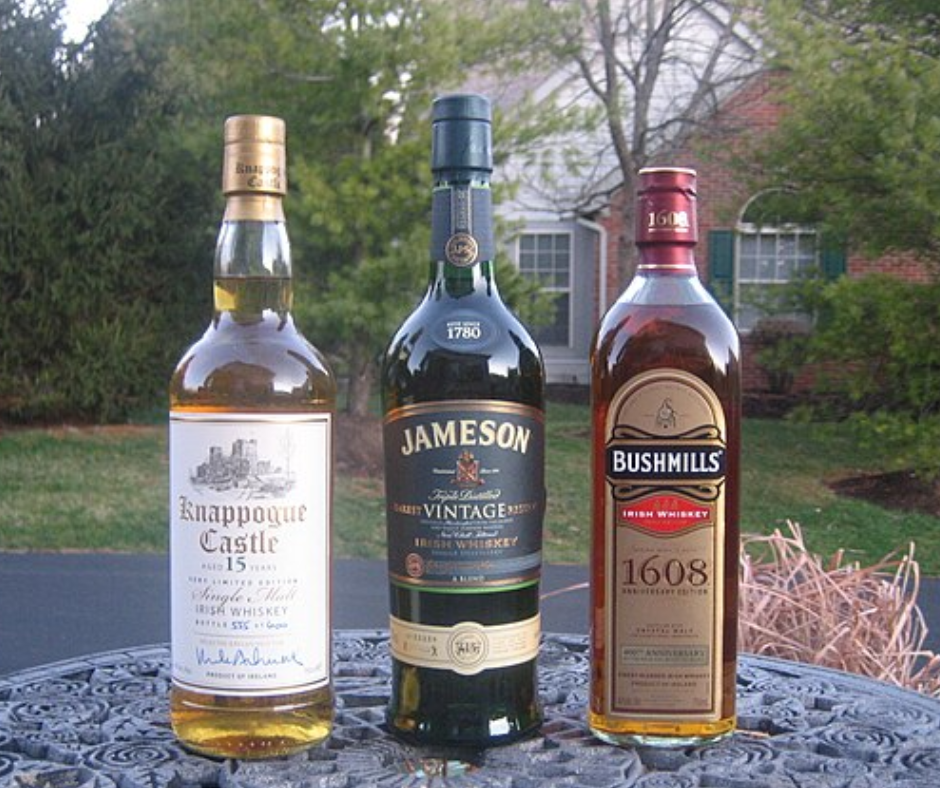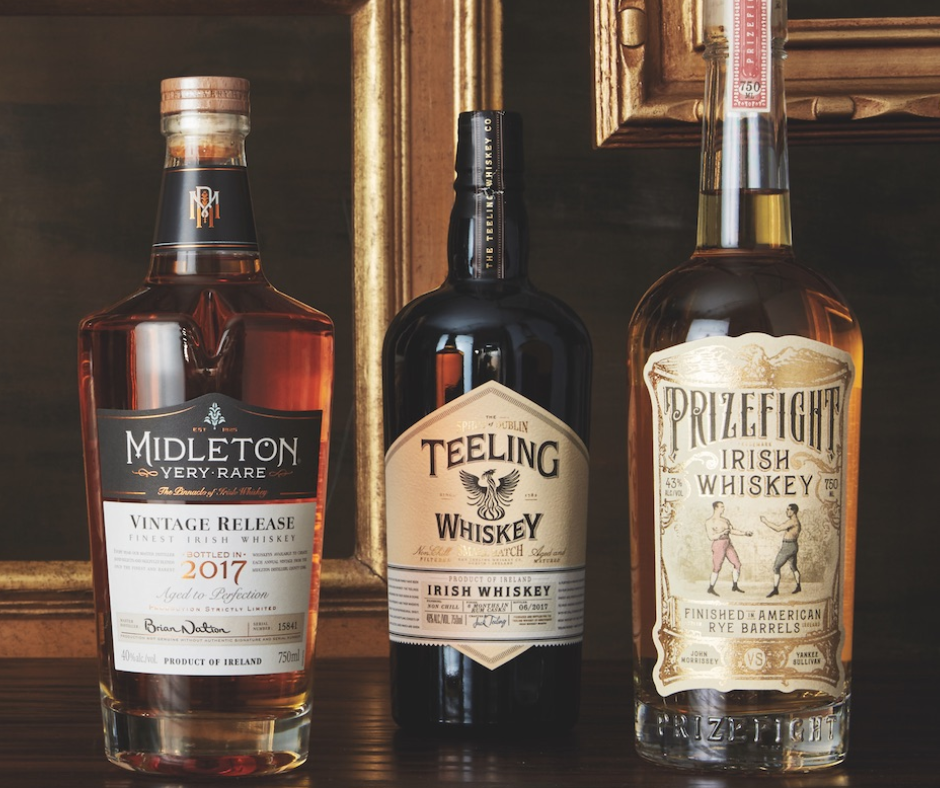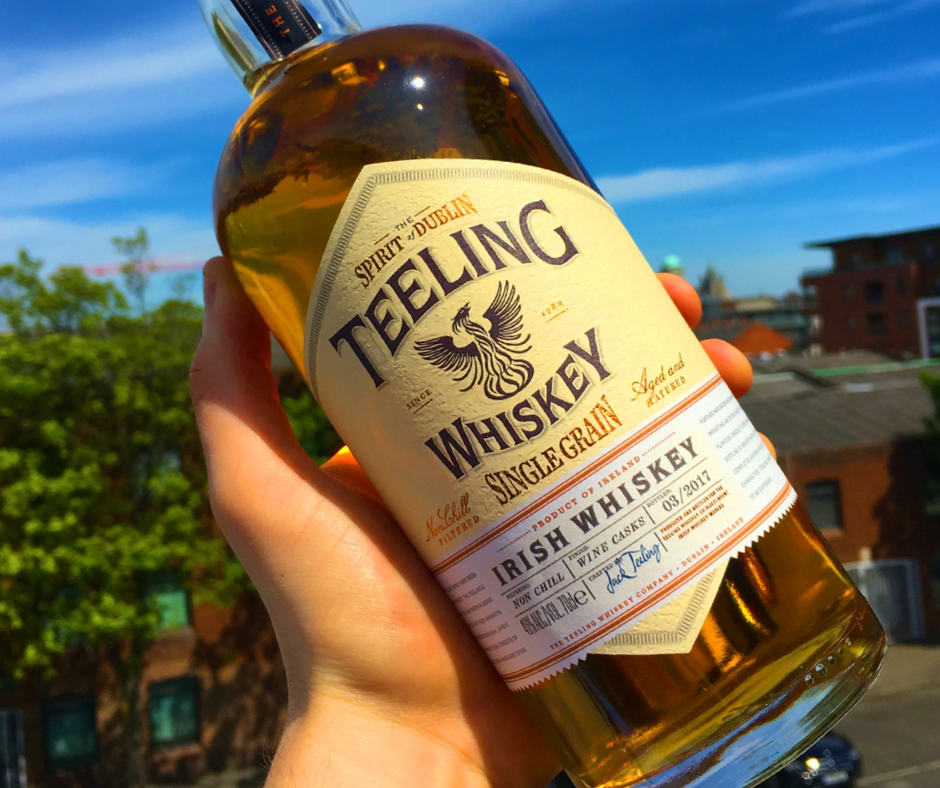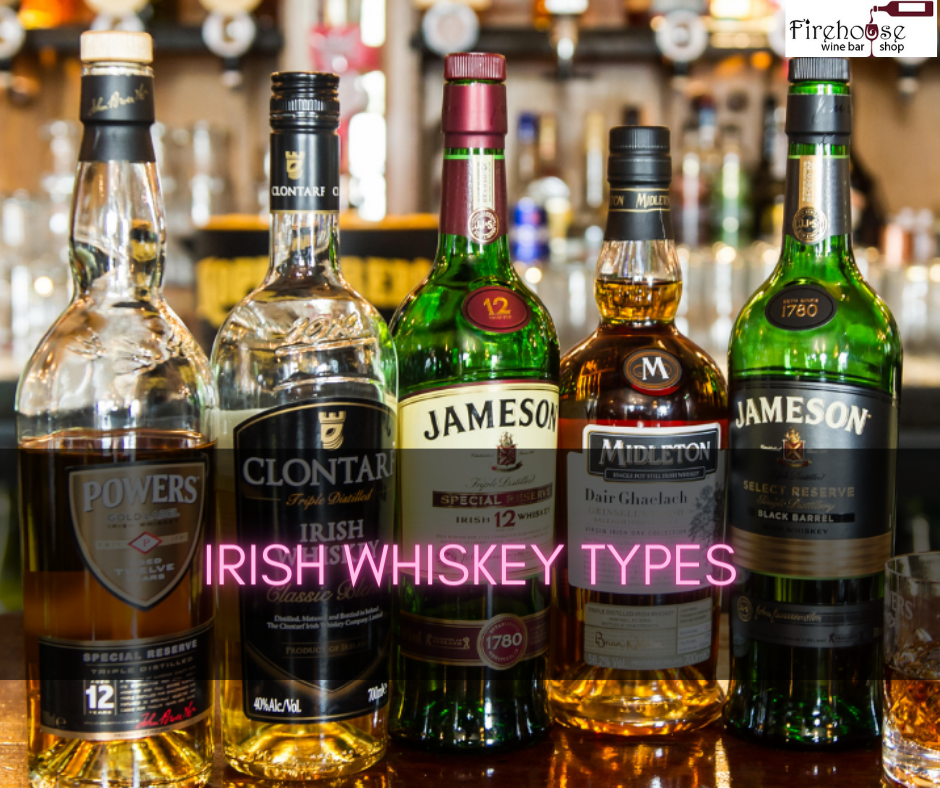Introduction
Irish Whiskey holds a special place in the hearts of many, not only because it is a delicious beverage to enjoy but also because of its rich and storied history. Many believe that Irish Whiskey was invented in Ireland, and its legacy can be traced back to the 15th century. Despite the hardships that Ireland has faced over the years, including occupation, taxation, and the loss of its biggest buyer due to Prohibition, the popularity of Irish Whiskey has continued to grow.
Sadly, despite being the inventors of Whiskey, Irish Whiskey has been overshadowed by its younger counterparts and, in the past, has nearly faded out of existence entirely. Of the most popular whiskies in the world, only one Irish Whiskey is included, and it is likely the only one that most people have heard of.
Despite this, there is a growing interest in exploring the art of Irish Whiskey and discovering the best ways to enjoy it. With its complex flavors and unique production methods, Irish Whiskey is an exciting and rewarding beverage to explore.
In the following sections, we will delve deeper into different Irish Whiskey Types, exploring their history, production methods, and the best ways to enjoy them. Whether you are a lifelong fan of Irish Whiskey or are just beginning to explore this storied beverage, there is something for everyone to discover.

Single Malt Irish Whiskey
Single Malt Irish Whiskey Production Process And Unique Characteristics
Single malt Irish whiskey stands out in spirits due to its unique production process. Unlike other Whiskey Types, single malt Irish whiskey is made exclusively from malted barley and distilled in pot stills within a single distillery. This results in a smooth and often fruit-forward profile, making it a favorite among whiskey enthusiasts.
The water used in production is drawn from Ireland’s pure springs and rivers, adding to the unique character of the Whiskey. Additionally, single malt Irish whiskey is often triple distilled, creating a smoother and lighter spirit than many double-distilled Scotches.
Popular Brands Of Single Malt Irish Whiskey Types
Some of the most popular brands of single-malt Irish Whiskey include:
- Jameson: An iconic Irish whiskey brand that has been crafting exceptional spirits since 1780.
- Redbreast: Known for its distinctive sherry cask finish and complex flavor profile.
- Teeling: An award-winning distillery that produces a range of single malt and blended whiskies.
- Bushmills: One of the oldest Irish whiskey brands, with a history dating back to 1608.
- Connemara: A unique Irish whiskey that is peated, giving it a smoky flavor.
- Glendalough: A relatively new distillery quickly gaining popularity for its innovative approach to Irish Whiskey.
- Green Spot: A classic Irish whiskey brand that has been producing exceptional spirits for over 100 years.
- Knappogue Castle: A premium brand that focuses on producing high-quality single malt whiskies.
In conclusion, single-malt Irish Whiskey represents a treasured category in spirits. Its unique production process and use of pure Irish water create a distinct flavor profile highly sought after by whiskey aficionados. With so many exceptional brands, there has never been a better time to discover the world of single-malt Irish Whiskey.
Blended Irish Whiskey
Blended Irish Whiskey Production Process And Blending Techniques
Blended Irish Whiskey is a unique and complex spirit that typically combines two or more types of Whiskey, such as malt and grain, to create a distinct flavor profile. Unlike single-malt Irish Whiskey, which must be distilled in a single distillery using 100% malted barley, blended Irish Whiskey offers more room for experimentation regarding ingredients and production methods.
Creating blended Irish Whiskey involves carefully selecting and blending different types of Whiskey to create a balanced and nuanced flavor profile. This can be done by combining different whiskey ages or using varying levels of peat smoke during the malting process.
Blenders may use a combination of malt and grain whiskey, with the latter produced using a mash bill that can include corn, wheat, or other grains. Grain whiskey is typically distilled using a column still and is often lighter and less complex than malt whiskey.
Popular Brands Of Blended Irish Whiskey
Some of the most popular brands of blended Irish Whiskey include:
- Jameson: One of the world’s most recognizable Irish whiskey brands, Jameson has been producing blended Whiskey since the 19th century. Its Whiskey is a blend of triple-distilled pot still and grain whiskey.
- Tullamore DEW: Named after the town of Tullamore in County Offaly, Tullamore DEW is a blended whiskey made from triple-distilled pot still, malt, and grain whiskey.
- Bushmills: Besides producing single malt whiskey, Bushmills is known for its blended whiskey offerings. Its standard blended Whiskey combines triple-distilled pot still and grain whiskey.
- Powers Gold Label: Powers is a popular Irish whiskey brand that produces a range of blended whiskeys. Its Gold Label offering is a blend of pot still and grain whiskey that has been aged for at least 12 years.
- Kilbeggan: Kilbeggan produces a variety of Irish whiskeys, including a popular blended whiskey that combines malt and grain whiskeys. It is aged in oak casks for a minimum of four years.
In conclusion, blended Irish Whiskey is a complex and diverse category of spirits offering various flavors and profiles. With its unique blending techniques and use of different types of Whiskey, blended Irish Whiskey will surely appeal to enthusiasts looking for something new and exciting.

Single Pot Still Irish Whiskey
Single Pot Still Irish Whiskey Distilling Process And Flavors
Single Pot Still Irish Whiskey is a traditional Irish whiskey style rooted in the 18th century. It is made from a mix of malted and unmalted barley in a single pot, making it a uniquely Irish spirit.
The distilling process of Single Pot Still Irish Whiskey begins by milling the grains and mixing them with hot water, creating a mash. Yeast is added to the mash, causing fermentation to occur. The resulting liquid, known as wash, is heated in the pot, causing the alcohol to evaporate. This vapor is then condensed into the Single Pot Still Irish Whiskey liquid.
The flavors of Single Pot Still Irish Whiskey are characterized by their mouth-coating texture, rich fruitiness, and tangy spice. These distinct flavors come from the raw materials used in the distilling process rather than the vessel in which it is distilled.
Popular Brands Of Single Pot Still Irish Whiskey
The popularity of single-still Irish Whiskey has risen in recent years due to its unique flavor profile and traditional distilling methods. Here are some popular brands of Single Pot Still Irish Whiskey:
- Green Spot: Produced by the Midleton distillery, Green Spot is a Single Pot Still Irish Whiskey aged for at least seven years in a combination of ex-bourbon and sherry casks.
- Redbreast: Redbreast is a range of Single Pot Still Irish Whiskeys produced by the Midleton distillery. The range includes several expressions aged up to 21 years in a combination of cask types.
- Powers: Powers is a popular Irish whiskey brand that produces a range of Single Pot Still Irish Whiskeys. Its Three Swallow expression is a blend of pot still and malt whiskey aged in ex-bourbon and sherry casks.
In conclusion, Single Pot Still Irish Whiskey is a traditional and uniquely Irish spirit that has recently regained popularity. Its flavors are distinct, and its distilling process is steeped in history and tradition. Wh whiskey enthusiasts can try several popular brands of Single Pot Still Irish Whiskey.
Grain Irish Whiskey
Grain Irish Whiskey Production And Distillation Processes
Grain Irish Whiskey is one of the three main Irish Whiskey Types, alongside Irish Malt Whiskey and Single Pot Still Irish Whiskey. It is produced using a mix of grains, including malted barley, unmalted barley, corn, and wheat, and is distilled in column stills.
The distilling process for Grain Irish Whiskey involves mixing the grains with hot water to create a mash. This is then fermented with yeast to produce a wash, which is then distilled in a column still. The column still produces a purer spirit than a pot, resulting in a lighter, more neutral flavor.
The alcohol content of Grain Irish Whiskey is typically higher than other Irish Whiskey Types due to the column still distillation process. It is usually aged for at least three years in oak casks, but some expressions are much longer.
Popular Brands Of Grain Irish Whiskey
There are several popular brands of Grain Irish Whiskey, each with its unique flavor profile. Here are a few examples:
- Jameson: Jameson is one of the most well-known Irish whiskey brands, and its Grain Irish Whiskey is made from a mix of maize and malted barley. It has been aged in charred oak casks for at least three years.
- Tullamore D.E.W.: Tullamore D.E.W. is another popular Irish whiskey brand that produces a range of grain whiskeys. Its Grain & Grape expression blends Irish grain whiskey and grape brandy, resulting in a complex, fruity flavor.
- Kilbeggan: Kilbeggan is a traditional Irish whiskey brand that produces a range of grain whiskeys. Its Small Batch Rye expression is made with a mix of malted and unmalted barley and rye, giving it a spicy, peppery flavor.
Grain Irish Whiskey is a versatile spirit that can be enjoyed neat, on the rocks, or in a cocktail. Its light, neutral flavor profile makes it a popular base for mixed drinks, but it can also be enjoyed independently.

Small Batch Irish Whiskey
Small Batch Irish Whiskey Creation Process And Aging Techniques
Small-batch Irish Whiskey challenges the conventions of traditional Irish Whiskey. It combines malted and unmalted barley and other cereal grains, including rye, wheat, and oats. After mixing the ingredients with hot water to create a mash, it is fermented and then double-distilled using pot stills. The resulting spirit is then aged in a combination of ex-bourbon and virgin oak casks to enhance its character and flavor.
Unlike other Irish whiskeys, the Small Batch Irish Whiskey is aged in small batches, and each batch is uniquely crafted. The blending process is essential to the aging technique, as different casks are expertly hand-selected and married together to create a consistent and smooth flavor.
Popular Brands Of Small Batch Irish Whiskey
One of the most popular brands of Batch Irish Whiskey is Lost Irish, which draws inspiration in its branding from Ireland’s rich history and folklore. The Small Batch of Irish Whiskey is initially aged in ex-bourbon barrels before marriage in small casks. It boasts a smooth and complex flavor with honey, vanilla, and toasted oak notes.
Another popular brand of Batch Irish Whiskey is Teeling, which is produced using 100% malted barley and distilled in small copper pot stills. It is aged in a combination of ex-bourbon and ex-wine casks, resulting in a unique flavor profile with hints of dried fruits, spices, and dark chocolate.
Overall, Small Batch Irish Whiskey offers a unique experience for whiskey enthusiasts who appreciate a finely crafted and distinct flavor profile. Its unconventional production and aging techniques make it stand out from other Irish Whiskey Types, and its popularity is on the rise in the modern whiskey market.
Dublin Whiskey Distilleries
Overview Of The Whiskey Distilleries In Dublin And Their Specialties
Dublin boasts of being one of the best destinations to experience the art of whiskey distilling. Among the well-known whiskey spots in the city are Teeling Distillery and Jameson Distillery, where visitors can learn about the history and the process of making Whiskey. From just two whiskey distilleries in the 1970s, Ireland now has over 20 distilleries that produce a wide range of whiskies to cater to different tastes.
One of the unique Irish Whiskey Types is the small-batch Irish Whiskey, which defies the traditional Irish whiskey norms. This Whiskey mixes malted and unmalted barley and other grains like rye, wheat, and oats. After fermenting the mash, it undergoes double-distillation using pot stills. The small-batch Irish whiskey aging process is distinct, aged in small batches made from expertly hand-selected casks.
The blending process of small-batch Whiskey is also crucial in creating a distinct and consistent flavor. Lost Irish is one of the most popular brands of small-batch Whiskey. It is aged initially in ex-bourbon barrels before being placed in small casks to achieve a unique smooth flavor with notes of honey, vanilla, and toasted oak. Teeling, another popular brand, is produced using 100% malted barley and distilled in small copper pot stills. It is aged in ex-bourbon and ex-wine casks, resulting in a unique flavor profile with hints of dried fruits, spices, and dark chocolate.
Whether you’re a whiskey enthusiast or a casual drinker, visiting Dublin’s whiskey distilleries will provide you with a unique experience. Each distillery has its specialties and unique production techniques, offering a spectrum of flavors and aromas to explore in a single glass.
Irish Whiskey Pairings
Irish Whiskey is an integral part of the Irish food culture and pairs remarkably well with fresh, local cuisine. Renowned Irish chef JP McMahon suggests excellent pairings for different Irish Whiskey Types.
Bread and Butter
The natural flavors of Irish Whiskey complement most meats, including beef, chicken, lamb, and pork – even in sandwiches. Grilled meats go well with strong, malty, peaty, or spicy whiskeys. Mature whiskeys finished in sherry barrels match the charred flavor of most meats.
Irish Farmhouse Cheeses
Soft cheese such as Brie or cheddar pairs well with Irish Whiskey’s texture and flavor.
Charcuterie
Spices and herbs in charcuterie pair well with smoky and spicy whiskies. With its coffee and chocolate notes, Coole Swan blends well with chorizo.
Fish and Shellfish
Triple-distilled Whiskey or single malt pairs well with light fish like cod or sole. Oily fish, such as salmon or mackerel, match well with peaty Whiskey.
Meat
Smoked meats like bacon or steak pair well with peaty Whiskey like Connemara. A mellow whiskey like Bushmill, a 10-year-old single malt, is perfect for roast pork with apples.
Chocolate and Other Desserts
Fruit desserts like apple tart or a berry crumble pair well with Whiskey that has fruity notes. The flavor of chocolate-based desserts complements Whiskey with notes of vanilla and toffee.
In conclusion, there is no correct way to pair food with Irish Whiskey. The key is to experiment. Visit Dublin’s distilleries and try their whiskey offerings with different types of food to find the best combination that suits your taste buds.
Conclusion
Irish Whiskey is known for its smooth and rich taste, which sets it apart from other types of Whiskey. There are several varieties of Irish Whiskey, each with its unique flavor profile. Irish Whiskey has something for everyone, from the classic single malt to the blended Whiskey. Exploring the different Irish Whiskey Types is like journeying through Ireland’s whiskey heritage. Visiting the Irish Whiskey Museum offers a remarkable opportunity to learn about the different Irish Whiskey Types and sample them through guided tastings.
To choose a whiskey that suits your taste preferences, consider the following:
- Single malt whiskey’s flavor varies depending on the distillation region, with the west of Ireland typically producing fruity, malty notes and the east producing whiskeys with a drier taste.
- Single-pot still Whiskey is unique to Ireland and has a spicier, fuller-bodied flavor due to its oat and barley content.
- Single-grain Whiskey is smooth and light, made from corn, wheat, or barley, and distilled in a column still.
- Blended Whiskey combines different whiskeys, creating a more balanced taste.
Exploring Irish whiskey heritage is a great way to experience Ireland’s culture and history. Irish Whiskey is worth exploring, from its flavor profile to its rich history.
FAQ about Irish Whiskey Types: Whiskey Heritage: Exploring Varieties of Irish Whiskey
What is Irish Whiskey?
Irish Whiskey is a type of Whiskey that is produced in Ireland following specific regulations. It is known for its smoothness and distinct flavor profile, which sets it apart from other types of Whiskey.
What are the different categories of Irish Whiskey?
Irish Whiskey can be classified into several categories based on its production methods and ingredients. The main categories include:
- Single Malt Whiskey: Made from malted barley and distilled in a pot still at a single distillery.
- Single Pot Still Whiskey: Made from a combination of malted and unmalted barley and distilled in a pot still at a single distillery.
- Grain Whiskey: Made from a mixture of grains, including barley, corn, wheat, and rye, and distilled in column stills.
- Blended Whiskey: A combination of different types of Irish Whiskey, including malt, grain, and pot still, to create a balanced and versatile flavor profile.
What are some popular brands of Irish Whiskey?
Several well-known Irish whiskey brands offer a wide range of options to explore. Some popular brands include Jameson, Bushmills, Tullamore Dew, Redbreast, and Powers.
What is the difference between Irish Whiskey and Scotch whisky?
The main difference between Irish Whiskey and Scotch whisky lies in their production methods and regional variations. Irish Whiskey is typically triple distilled, resulting in a smoother and lighter character. In contrast, Scotch whisky is usually distilled twice, which gives it a more robust and complex flavor profile. Additionally, Scotch whisky is often made from malted barley, while Irish Whiskey can include other grains in its production.
Can Irish Whiskey be enjoyed neat or in cocktails?
Absolutely! Irish Whiskey is very versatile and can be enjoyed in various ways. Many whiskey enthusiasts prefer to sip it neat or on the rocks to appreciate its flavors and aroma fully. However, it also works well in classic cocktails like Irish Coffee and Whiskey Sour and even as a key ingredient in the famous Irish Car Bomb.
Are there any age statements on Irish whiskey bottles?
Yes, many Irish whiskey producers include age statements on their bottles, indicating the minimum number of years the Whiskey has been aged in barrels. However, it’s worth mentioning that not all Irish whiskeys have age statements, as some brands focus on blending different whiskey ages to achieve their desired flavor profiles.
Does the price of Irish Whiskey reflect its quality?
While there is often a correlation between price and quality in the world of Whiskey, it’s essential to note that personal preferences play a significant role. Expensive Irish whiskeys typically offer more complex flavors and a smoother finish due to longer aging periods. However, there are also many affordable options that provide excellent quality and enjoyable tasting experiences.
Is Irish Whiskey suitable for both beginners and seasoned whiskey drinkers?
Absolutely! Irish Whiskey’s smoothness and approachable flavor profile make it an excellent choice for beginners who are new to the world of Whiskey. At the same time, it offers enough complexity and character to satisfy the palate of seasoned whiskey enthusiasts. It’s a versatile spirit that a wide range of consumers can enjoy.
In conclusion, exploring the world of Irish Whiskey offers a delightful journey through its various types and flavors. Whether you prefer the smoothness of single malts or the complexity of blended whiskeys, there is an Irish whiskey available for every taste and occasion. So, raise a glass and embark on a whiskey adventure filled with rich heritage and exceptional craftsmanship!

Andre Lotz immigrated to the United States from South Africa almost 20 years ago. Still, he didn’t feel truly at home until he settled in Mobile—a city that reminds him of his childhood home of Fish Hoek on the southern cape of Africa.

